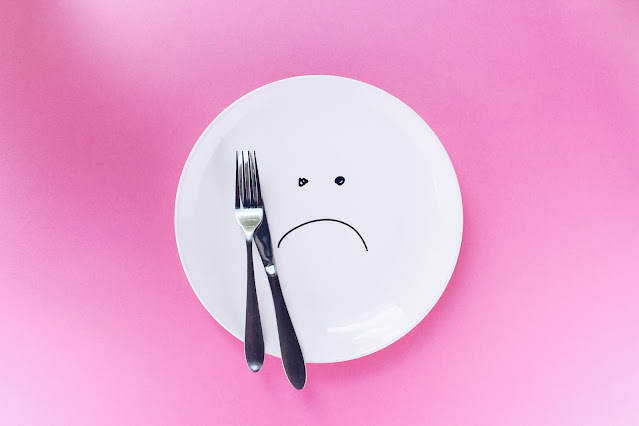While it's important to take care of your mind and spirit, it's also critical to pay attention to what your body needs. Your body is always talking to you, but most of us are too busy or distracted to listen. While the mind makes decisions and the body executes those decisions, they both need fuel in order to function properly. So how do you know if your body needs more nutrients? How can you tell if its functioning at peak performance? Here are a few tips on how we as humans can make sure our bodies are working well:
What is your body telling you?

You've heard the saying, "listen to your gut." What does it mean? It means that you should listen to your body. Your body is a finely tuned machine that has been working hard for years, even before you were born. If you are not listening to what your body needs and how it feels, then something is wrong! If you are not listening to your body then how will you know when something is wrong? How will you be able to achieve any goals if they go against what your body wants?
The answer isn't complicated: if something doesn't feel right in your gut (and elsewhere), then don't do it. Listen up!
When was the last time you slowed down and listened...

When was the last time you slowed down and listened to your body? When was the last time you gave it a break, took some time off, or even took a nap? If it's been a while since you've done this, then now might be a great time to start. Your body is always talking to you. It has an incredible way of telling us what we need in order for our health and wellness to flourish. The more we listen to our bodies, the more tuned into its needs we become—and ultimately make better decisions about what's best for ourselves physically, mentally and emotionally.
In fact, when it comes down to nutrition alone (which isn't everything), there are countless ways in which our bodies can tell us what they need at any given time:
- Your stomach growls when hungry...
- Your tongue feels dry when thirsty...
- You get headaches from lack of sleep...
- You get heartburn after drinking too much soda...
What does it need?
- How is your diet?
- Are you getting enough of the right nutrients, or are you filling your body with processed foods and empty calories.
The answer may be as simple as adding more fruits and vegetables to your plate. If that doesn't work, try something else. Don't give up on yourself by saying "I've tried everything." There is always another way if you're willing to do a little research and experiment!
How is your diet?
- Eat a balanced diet.
- Choose foods that are high in nutrients, low in calories and fat, and low in sugar.
- Choose foods that are high in protein and fibre.
Are you getting enough of the right nutrients?

Nutrients are the building blocks of our cells, tissues, and organs. They provide us with energy to live, repair our cells and tissues when they break down, and enable us to feel good. There are 14 essential nutrients: protein (amino acids), carbohydrates (sugars), fats (triglycerides), vitamins, minerals and water.
The best sources of each nutrient include lean meats; fish; nuts; seeds; legumes (beans); low-fat dairy products like yogurt or cheese made from skim milk; eggs; whole grains such as brown rice or quinoa (pronounced "keen-wa"); fruits like bananas or apricots that have a high vitamin C content; vegetables such as broccoli, Brussels sprouts and bell peppers all contain lots of vitamin A which will help keep your eyesight healthy!
There are many different types of supplements on the market today. While some may be effective at helping you reach your goals faster than others - it's important that you talk with your doctor before taking any over-the-counter supplements so they can give guidance on how much is right for you given your personal health history & current diet/lifestyle habits!
Or are you filling your body with processed foods and empty calories.

In the process of preparing for a 5k (which I definitely do often), you may have noticed that your body needs more fuel than before. You've been eating better and working out, but how do you know if it's enough to sustain your long-term goals? Do your joints hurt when you run? Are there days when you don't feel like exercising at all? Do you eat too much or too little and then overeat later on just to feel full again?
These are all signs that something is off with how much energy your body is taking in each day. It's important to listen to what your body is telling you so that it doesn't get overwhelmed with processed foods and empty calories (more on those later!).
Are you eating enough fruits and vegetables?
Research shows that eating a variety of fruits and vegetables is best. When you eat a variety, you get more nutrients.
The best way to make sure you're getting enough fruits and vegetables is to eat five or more servings per day. A serving size is only half a cup (or about the size of your fist) for fruit and one cup for vegetables (about the size of your cupped hands). You can mix it up—it doesn't have to be all broccoli or all strawberries! Fruits and veggies are tasty when they are cooked or added as ingredients to meals, but if you don't like the taste of them raw (or unseasoned), try adding some no-sugar-added applesauce or dressing with vinegar on top instead.
A well balanced diet is paramount.

A well balanced diet is paramount. You need to consume the right amount of the three main nutrients: protein, fat and carbohydrates.
- Protein is a vital component of your body's cells, tissues and organs. It helps build muscle, repair tissues, make enzymes and hormones, regulate body processes and transport oxygen in your blood. Protein also contains essential amino acids that are necessary for brain function and good health. A well-balanced diet should contain 10% to 35% of calories from protein sources such as meat (poultry or fish), eggs, legumes (beans) nuts/seeds/legumes tofu etc...
- Fat can be divided into two types: saturated fats which raise levels of LDL cholesterol (bad cholesterol) in your blood; unsaturated fats which lower levels of LDL cholesterol in your blood so they are considered "good" fats! Monounsaturated fats are derived mostly from plant oils like olive oil while polyunsaturated fats come mainly from fish (salmon) seeds flaxseeds walnuts avocados etc...
- Carbohydrates provide energy but they also regulate blood sugar levels so it's important not overconsume them! The recommended daily intake is between 45% - 65% carbohydrates depending on your activity level age weight height frame etc... Low carb diets have been shown to decrease risk factors associated with heart disease stroke diabetes cancer inflammation stress-related conditions like PMS depression mood swings higher risk for osteoporosis constipation fatigue irritability hunger cravings fatigue irritability hunger cravings
Listen to your body and fuel it properly.
- Listen to your body: This is the most important tip of all. Your body will tell you when it needs food and when it doesn't. If you're hungry, eat something tasty! If you're bored and don't feel like eating anything at all, then don't force yourself to eat just because somebody told you that you should be eating every two hours or so. Listen to your body and fuel it properly by feeding it foods that make sense for its current nutritional needs.

The bottom line is that we need to take better care of our bodies. We spend so much time and effort on the outside of ourselves but neglect the inside. Don’t let this happen to you! Keep in mind what your body needs and how it feels when things don’t go well. There are many ways to improve your health including changing your diet, exercising regularly and even taking supplements like vitamins or minerals.
